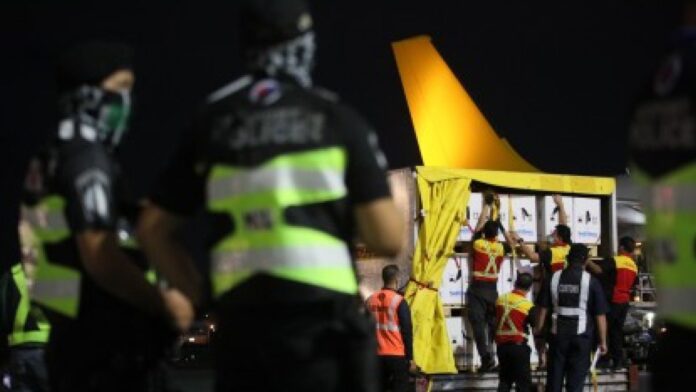The crisis in Europe following Russia’s invasion of Ukraine has not yet affected the country’s vaccine supply, most of which are sourced from Western countries, but shipping costs are likely to increase, the Department of Health (DOH) said Saturday.
“[A]s of now, we do not see any problem in terms of the other vaccines except that siguro baka tumaas in terms of the transport… baka tumaas iyong presyo kasi nga iyong pag-transport, etc. But I’m sure we will be able to manage basta naayos na iyong ating mga contract agreements (except that costs may balloon because of its impact on transportation, etc. But I’m sure we will be able to manage because we’ve already secured the contract agreements),” said Health Undersecretary Myrna Cabotaje in a Laging Handa briefing when asked to comment on how the Ukraine-Russia war would affect the delivery of vaccines.
On February 24, oil prices jumped above USD100 a barrel after Russia launched a military assault against Ukraine, an act described by the latter as a “war of aggression”.
At present, Cabotaje said deliveries are still on track but there are some delays in the shipment of vaccines for five to 11 years old.
“May kaunting aberya but naayos na iyan in terms of the payments. So imbes na may dadating na 1.6 million (jabs) noong February 23 ay first week of March na dadating (There are some hitches but we’ve already settled it in terms of payment. So instead of 1.6 million jabs for February 23, it will arrive here in March),” she said.
“We hope na on track pa rin iyong pagbigay ng ibang shipment ng ating five to eleven years old na bakuna. But iyong ating mga ibang bakuna, iyong ating adult na Pfizer ay on track naman po iyan (We hope that the shipment of vaccines for five to 11 will normalize but for Pfizer for adults, that’s on track),” she added.
Meanwhile, she noted that the country has no plans to buy more Sputnik V vaccines as supplies for these Russian-made jabs are “enough”. (PNA)


